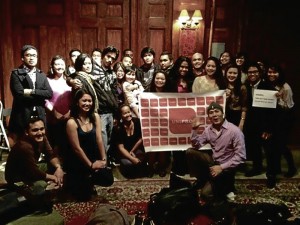Tales of resilience and true grit
NEW YORK—Ray Sison arrived in America when he was six. He is brown, he was shy, he is small, and many made fun of his accent. His guidance counselor in Jersey City told him not to bother applying to schools in New York because he wouldn’t make it. But Ray ignored the doors slamming in his face. He wanted to be an artist, and after putting together his portfolio got accepted into the Fashion Institute of Technology on his second try. Today, he works for a digital agency doing interactive graphic designs for Nike products. He quipped during the June 2 Summit of the Pilipino American Unity for Progress (UniPro) that he wanted to go back to his guidance counselor as if tempted to say, “You’re wrong, I’m not a loser.”
In a way, Ray is an apt symbol of the perseverance, resilience and grit of Filipinos who succeed in the United States, a renaissance of talented, second-generation Filipino Americans who are forging their own identity. While many of his peers were making a beeline for nursing, Ray struck out on his own and followed his chosen path. He took his father’s narrative to heart and learned from it: A businessman in the Philippines who became a janitor in the United States. Through it all, Ray’s father managed to rise again and raise a family just by going with his guts.
“The Filipinos always excel,” said UniPro founder Steven Raga in an interview with The FilAm. “We take a step forward in many aspects.”
For its second summit, UniPro—an organization of young professionals and students—is celebrating the theme of “Pilipino Renaissance” or the resurgence of a people in whatever endeavor they have chosen. While there are many Filipinos who have done exceptionally well, there are others who may not be as successful but are just as well-intentioned and driven. Whoever they are or whatever their chosen field, Steven said UniPro’s message is: “We will be proud of you.”
Steven said young Filipinos may be different from the older generation in the way they think and how they see and interpret the world around them.
“We feel sometimes that the older generation wants to become mere followers instead of leaders, and especially if you are young you don’t want followers behind you, you want leaders next to you,” he argued.
Again, Ray’s story is reflective of this sentiment. At Nike, instead of talking about what he knows, he said he showed his coworkers what he is capable of doing and offered a different way of doing things. At times, he said he would rather put ideas to work than attend company meetings.
“I always made sure to listen to others and tell them I could learn from them,” he said.
Chairperson Suzette Briones said the summit recognizes the “honesty and sense of hopefulness” of Filipinos. While there are some who are prone to put the Philippines down, she said many Filipinos especially the young are pushing back and saying, “No, we’re not; that’s not who we are.”
She said renaissance, by UniPro’s definition, is “the awakening of the Filipino’s earnest passions and aspirations, the creation of a community that nurtures the Filipino’s aspirations; and the flourishing of the global Pilipino community.”
Novelist Ninotchka Rosca examined renaissance in terms of the Filipinos’ multilayered culture of Hispanic, American, Middle Eastern and Asian influences.
“Perhaps what we call renaissance at this point in time is a coming together of the different parts of our history and culture, to create a world view of unique transnationalism,” she said. “This has given us our remarkable resiliency and adaptability.”
